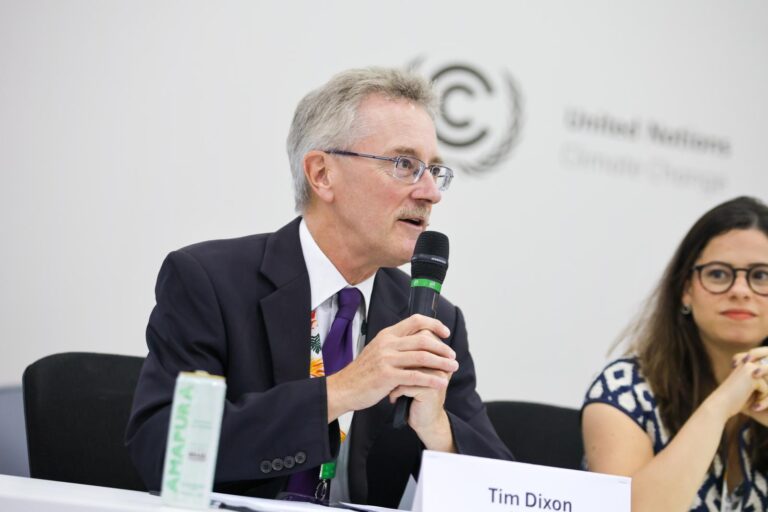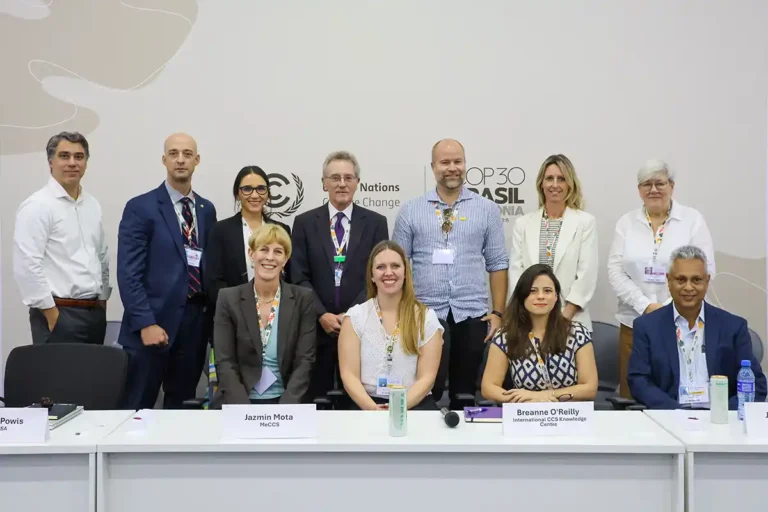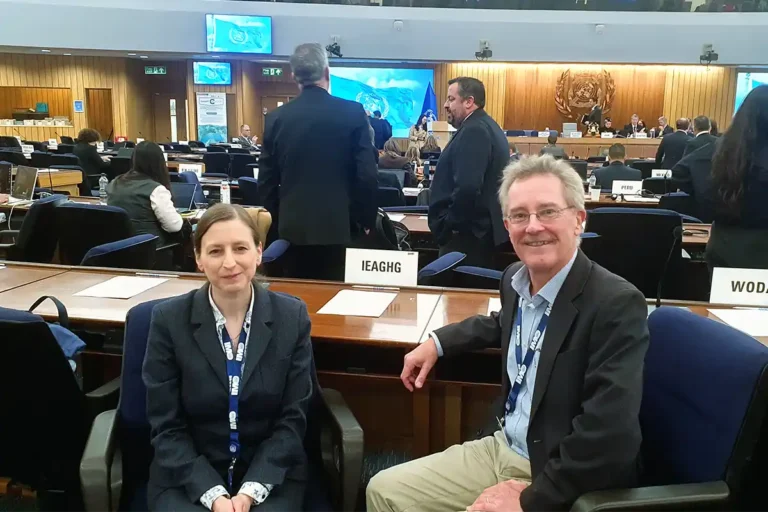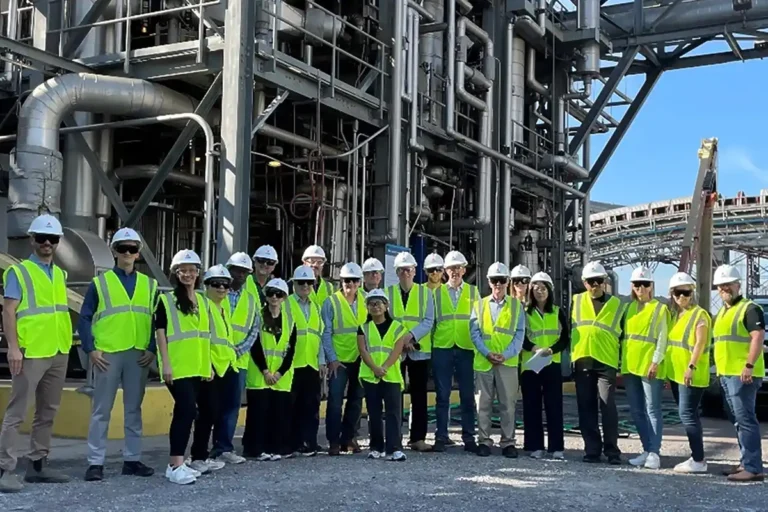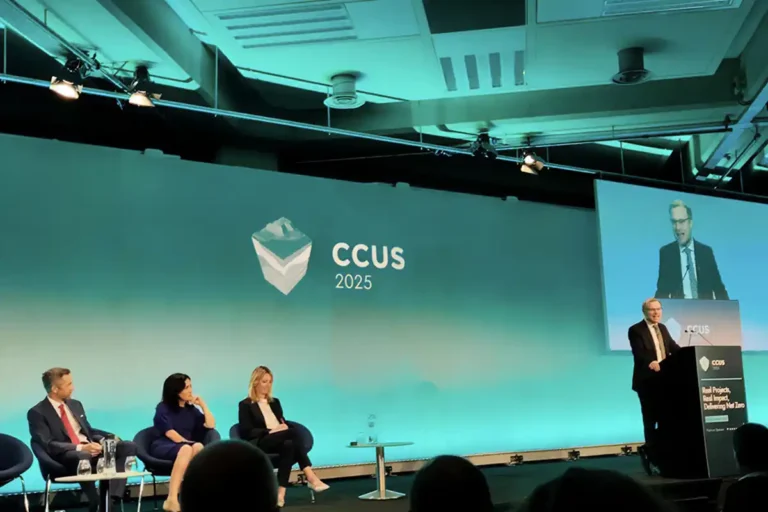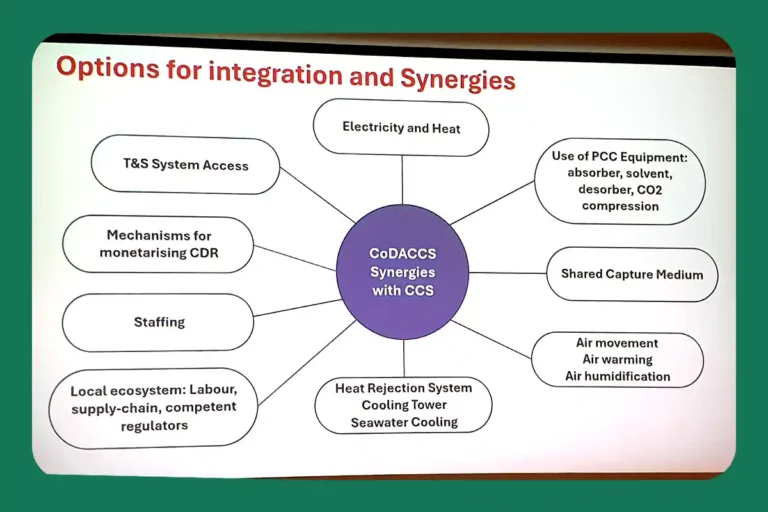
Green Climate Fund supports it’s first CCS activity – developments with a global impact from Trinidad & Tobago
20 May 2024
Big things can start in small countries. Trinidad and Tobago has a history of leading the world in energy developments, such as with LNG development and exports in the past.
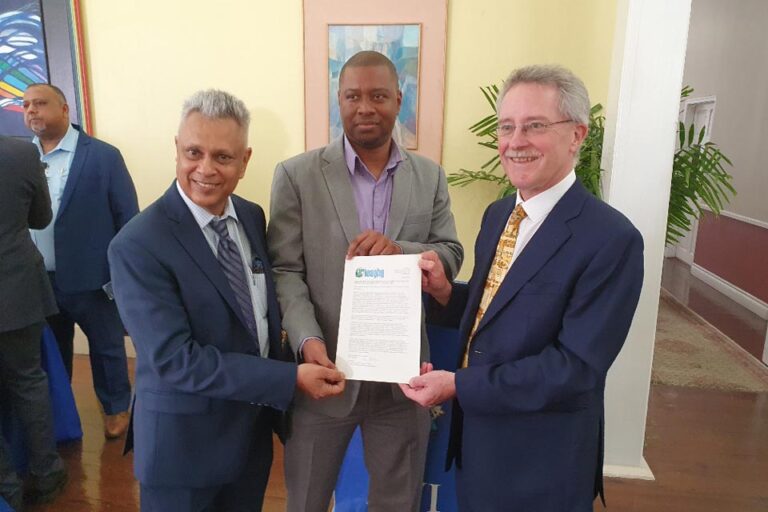
Big things can start in small countries. Trinidad and Tobago has a history of leading the world in energy developments, such as with LNG development and exports in the past. On the 1st of May Trinidad and Tobago announced two new significant developments. The first is from The University of West Indies (UWI) and the University of Trinidad and Tobago (UTT) who launched a Carbon Capture Utilisation and Storage Collaborate (CCUS-C) which will create a centre of research in CCUS.
The second significant development is that they have been successful in being awarded funding from the Green Climate Fund (GCF) for CCS activities. This was announced by Mr Keshore Lutchman, Deputy Permanent Secretary of the Ministry of Planning and Development. The GCF Readiness Fund will provide funding to develop further their national CCS readiness including assessing the storage potential in deep saline formations to produce a national storage atlas, as part of a broader GCF project with Suriname. The GCF is the largest climate finance body for developing countries, established in 2011 (see my blog of 12/12/11) with current funding of some $13bn mobilising some $52bn. This is the first time that it has funded a CCS-related activity, even though it explicitly has CCS in its remit. IEAGHG and the University of Texas have encouraged countries to apply and liaise with the GCF since its start at COP17 (the same COP where CCS was agreed in the Clean Development Mechanism – with IEAGHG playing a key role). As this is the first time the GCF has funded a CCS activity, this should set a precedent for other developing countries to be financed by the GCF for CCS-related activities.
It has been quite a journey! For Trinidad and Tobago, the seed was sown with their presentation at our UNFCCC Side-event in COP23 in Bonn in 2017 (the theme was oceans and CCS), and in 2018 we discovered that a UNFCCC Technology Needs Assessment (TNA) was underway for Trinidad and Tobago but which did not include CCS. So the country’s CCS experts were mobilised and they ensured that mitigating its largest CO2 emission sources from methanol and ammonia production with CCS was included in the TNA (published 2021). We also started discussions with GCF and its regional agencies and worked with the national experts in organising their first national CCS workshop which was held in October 2019 (see my blog of 31/10/19).
With the University of Texas, we are proud to have been working with the CCS leaders in UWI and UTT since 2017 to advance CCS and to share knowledge with other developing countries at UNFCCC COPs, and working with them for the GCF proposal. We have also been regularly educating students from Trinidad and Tobago in our International CCS Summer Schools, creating future CCS leaders. All of this will be built upon by the CCUS-C initiative.
The CCUS-C initiative will further national research on carbon capture utilisation and storage and provide accurate reliable information about CCUS as an emissions mitigation option for the industrial and power sector CO2 emissions sources in the country. Universities are a trusted source of information for the stakeholder community (including those in industry, policy, regulatory, and the public) with strong existing research, expertise, and facilities to host discussions and to provide information. This initiative will build upon the expertise of these universities. This initiative will also be able to bring expertise to the country from CCS experts globally for technology transfer for a national and regional focus and benefit. Trinidad and Tobago is already the centre of expertise on CCUS for the Caribbean region, and this CCUS-C initiative will develop that further. The speakers at this launch event included the heads of the two universities, the Permanent Secretary Mrs Penelope Bradshaw-Niles of the Ministry of Energy and Energy Industries, UWI and UTT CCS experts, and myself. Several speakers referred to the new EU policy the Carbon Border Adjustment Mechanism (CBAM) and the need to reduce the emissions from Trinidad and Tobago’s exports to Europe. The event was also attended by senior executives from industry and national media.
As IEAGHG we encourage sharing of technical and non-technical information and expertise on CCS as one of our core activities so as to assist the deployment of projects and the improvement of CCS technologies. We will support this CCUS-C initiative as a new centre of research and knowledge, by assisting in bringing global expertise and experience where appropriate. We also look forward to further assisting in the sharing of CCUS-C expertise and knowledge with other countries around the world through our GHGT conferences and our side events at UNFCCC COPs. We were pleased to provide a letter of support to this initiative.
So two good news stories from Trinidad and Tobago were announced at this event. Congratulations to those involved from UTT, UWI and the Ministry of Planning and Development for persevering over several years to get the GCF funding and setting a global precedent. To borrow a slogan from the University of Texas, “What starts here can change the world”!
Note: As the GCF is the largest climate finance body for developing countries, IEAGHG has been engaging with them and their regional agencies as they developed from 2012, including meetings with GCF staff at COPs and visiting GCF headquarters in Korea in 2017. Acknowledgements should also be given to the GCCSI who have attended and followed GCF annual meetings and provided submissions to their strategy consultations.
Other articles you might be interested in
Get the latest CCS news and insights
Get essential news and updates from the CCS sector and the IEAGHG by email.
Can't find what you are looking for?
Whatever you would like to know, our dedicated team of experts is here to help you. Just drop us an email and we will get back to you as soon as we can.
Contact Us Now


